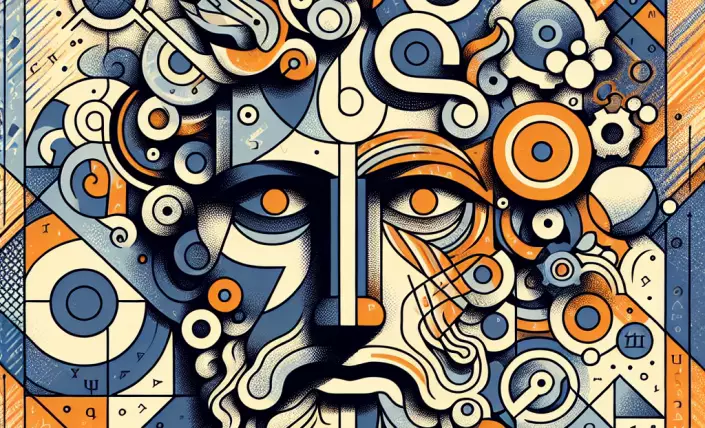In a world that often craves order, predictability, and stability, the idea of embracing chaos may seem counterintuitive. However, the philosophy of Friedrich Nietzsche invites us to consider the potential benefits of chaos as a catalyst for personal transformation and growth. Nietzsche's provocative assertion that 'one must still have chaos in oneself to be able to give birth to a dancing star' underscores the transformative power inherent in life's uncertainties and disruptions. By examining this concept, we can gain insights into how chaos, rather than being an obstacle, might be a vital component of self-realization and existential fulfillment.
At its core, Nietzsche's philosophy challenges us to rethink our relationship with chaos. Rather than viewing it as a purely destructive force, Nietzsche perceives chaos as an essential condition for creativity and rebirth. This perspective aligns with his broader critique of societal conventions and moral dogmas, which often seek to impose rigid structures on the inherently fluid and dynamic nature of life. Nietzsche encourages us to break free from these constraints, suggesting that true growth occurs when we confront the unpredictable and embrace the unknown. This process, though unsettling, can lead to the emergence of new values and perspectives that are more authentic to our individual natures.
Nietzsche's notion of the Übermensch, or 'Overman,' is central to understanding how chaos can facilitate personal transformation. The Übermensch represents an individual who has transcended conventional moralities and societal expectations, crafting their own values and meanings. This figure is not born from order but is forged through the chaos of existence, constantly reshaping themselves in response to life's challenges. In this light, chaos becomes a crucible for the development of resilience, creativity, and a deeper understanding of oneself. By willingly engaging with the chaotic elements of life, we can begin to dismantle the fear and aversion that often accompany uncertainty, leading to a more liberated and empowered existence.
Moreover, Nietzsche's exploration of the concept of 'eternal recurrence' further illuminates the role of chaos in personal development. This thought experiment asks us to imagine living our lives repeatedly, with every moment recurring infinitely. Such a perspective forces us to confront the choices we make and the lives we lead, urging us to live in a manner that we would willingly repeat. This existential challenge compels us to embrace chaos as an opportunity to create a life that is not only bearable but desirable. By accepting chaos as an integral part of existence, we can cultivate a mindset that values adaptability, courage, and the pursuit of meaning, regardless of external circumstances.
In practical terms, embracing chaos requires a willingness to let go of the illusion of control and certainty. It involves cultivating an openness to new experiences and a readiness to question established beliefs and assumptions. This philosophical approach encourages us to view life's disruptions not as threats, but as invitations to explore uncharted territories within ourselves. By doing so, we can tap into the 'dancing star' within us—a source of creativity, vitality, and purpose that thrives amidst the unpredictability of existence. Nietzsche's philosophy thus serves as a powerful reminder that the path to personal transformation is not through the avoidance of chaos, but through its embrace, allowing us to live more authentically and meaningfully.










